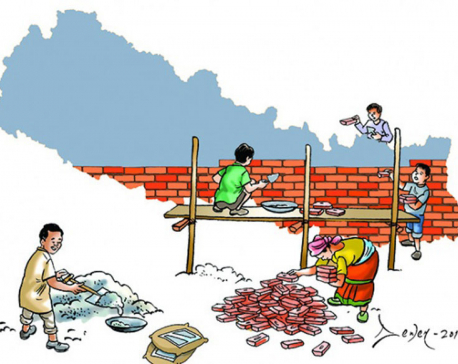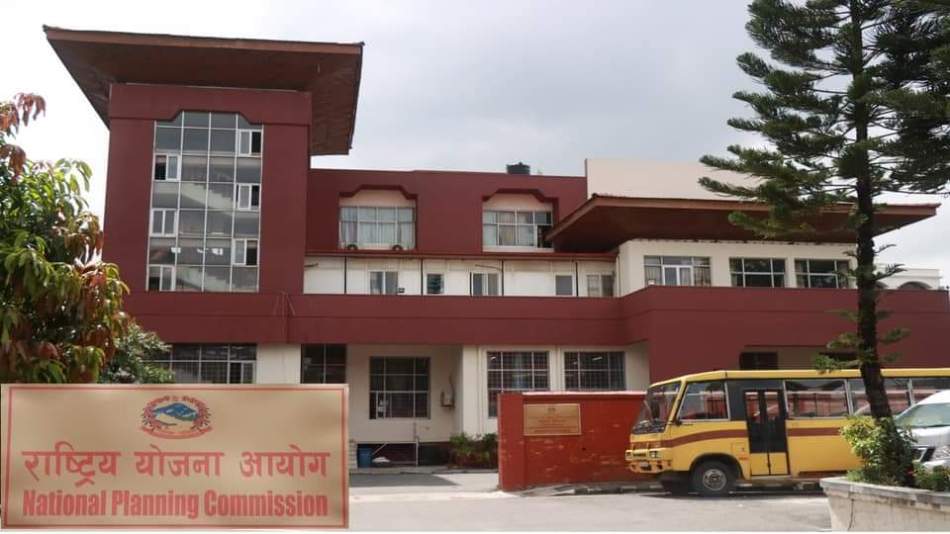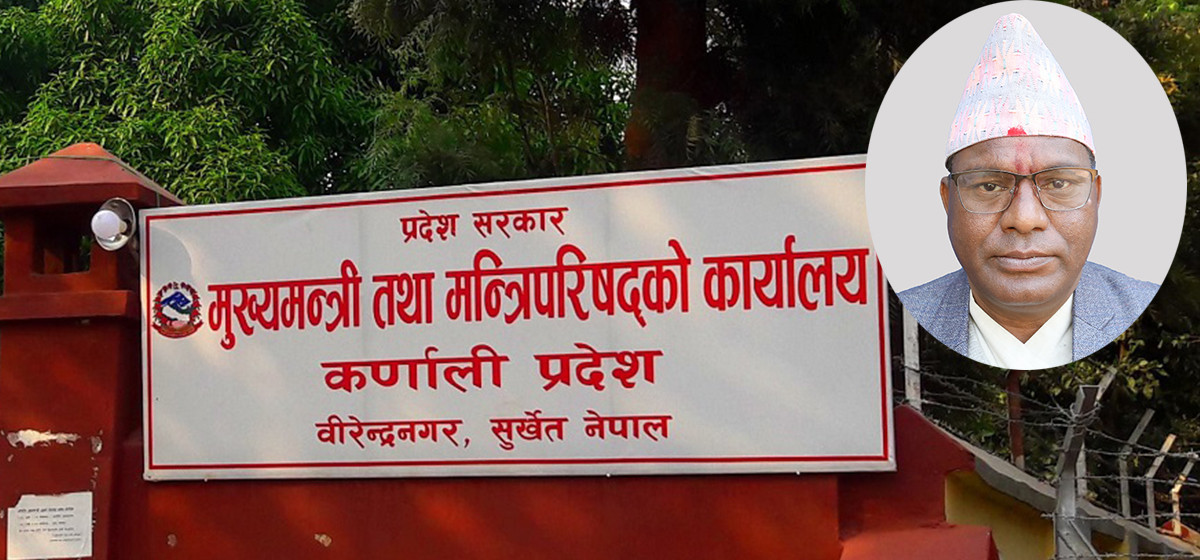
OR
One year of local governance
Waiting for Godot!
Published On: May 16, 2018 12:57 AM NPT
One year after Nepal elected its local governments, progress card of over 740 local units shows mostly disappointing results. While some elected representatives have taken praiseworthy steps such as promptly taking up development works, others have literally wasted the precious one year doing nothing or concentrating on trivial activities like inaugurating programs and delivering speeches. Kathmandu Metropolitan City set the worst record.
One year in power, its mayor Bidya Sundar Shakya has nothing to show for achievement. Kathmandu remains enveloped in dust and virtually all of 101 promises he made on the campaign trail remain unfulfilled. If Kathmandu had set the right example, other bodies would perhaps follow suit. Some of the elected officials at the local level were even found abetting violence against women rather than taking action against the perpetrators. Frankly, a year after the country held historic local elections we have almost nothing to boast of.
People have only complaints against elected representatives. In Barahatal Rural Municipality of Surkhet, for example, elected representatives have not even returned to their constituencies after winning the elections. In Dailekh, locals complain of elected representatives spending more time in delivering speeches. Local body like Mahabu Rural Municipality, however, is an exception. It has already formulated 19 different laws, policies and work plans. It has constructed a building for the local unit and extended road access to all seven wards of the rural municipality. There was a lot of hope this time last year.
The slogan Gaugauma Singha Durbar (government in each village) inspired optimism. Yes, one year may not be appropriate duration to judge the performance of all local governments. The elected local units we have today are completely different from those we had in the past. They run under the federal system and they have been granted so many powers but appropriate legislations are yet to be formulated by the parliament for their smooth functioning.
As the experts have pointed out there is no clarity in jurisdiction, necessary infrastructures are yet to be constructed and they lack adequate personnel. Issue of division of revenues and fund transfers from the federal government to the local are also yet to be settled. There is conspicuous lack of demarcations of the roles and responsibilities of all three tiers of government. But we believe one of the reasons they have failed to perform is because elected representatives focused more on demanding luxurious vehicles, perks and facilities rather than serving the people on the ground.
Unless they shift their priorities to vital duties of development, this state of inaction might continue in the years to come as well. The central government should allocate necessary budget and frame necessary laws to keep the local units functioning. As much important is the sincerity on the part of local leaders themselves. Local governments serve as foundation to sustain the federal system and democracy. If this system fails, it might lead to the failure of the federal system itself for which Nepali people have struggled for long.
The next four years are going to be crucial for strengthening local governments and making them truly functioning. Political leaders, take note of this fact.
You May Like This

Waiting for Godot
For people like my father in remote Gorkha there is still uncertainty over whether they will get any help ... Read More...

Voters in Rolpa desperately waiting for Sunday's elections
ROLPA, Nov 26: After months of waiting and anticipation, Rolpa the origin of the decade-long Maoist insurgency, is ready for the... Read More...

Deuba says they're waiting for PM's resignation
KATHMANDU, July 13: Nepali Congress president Sher Bahadur Deuba has has said he believes Prime Minister KP Sharma Oli will... Read More...






Just In
- National Development Council meeting on Thursday to finalize 16th Plan
- Qatar Emir meets PM Dahal, bilateral agreement and MoUs signed between Nepal and Qatar
- Employee involved in distribution of fake license transferred to CIAA!
- Youth found dead in a hotel in Janakpur
- CM Kandel to expand cabinet in Karnali province, Pariyar from Maoist Center to become minister without portfolio
- Storm likely to occur in Terai, weather to remain clear in remaining regions
- Prez Paudel solicits Qatar’s investment in Nepal’s water resources, agriculture and tourism sectors
- Fire destroys 700 hectares forest area in Myagdi



_20240423174443.jpg)









Leave A Comment